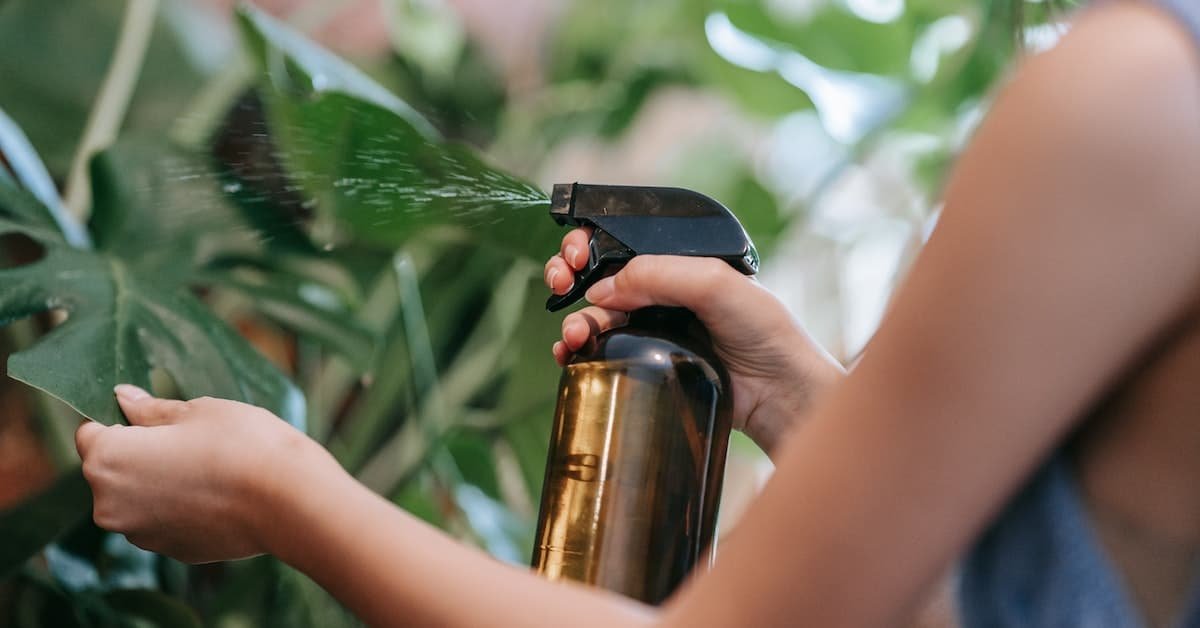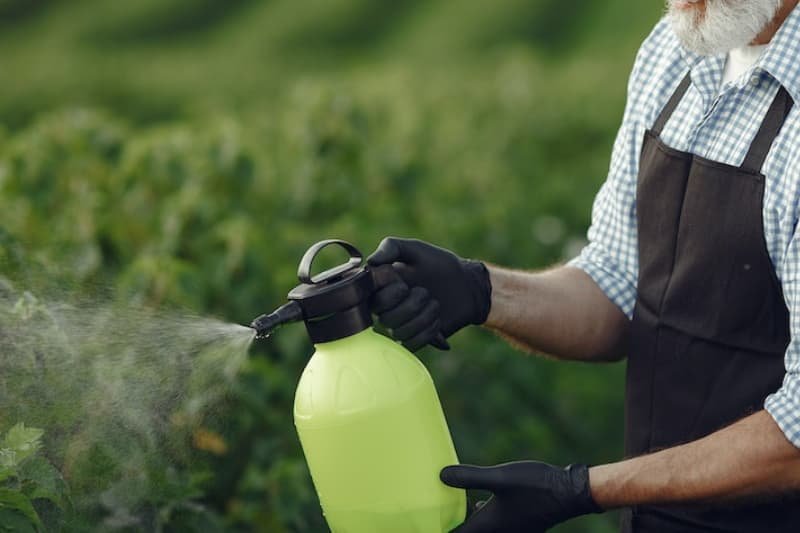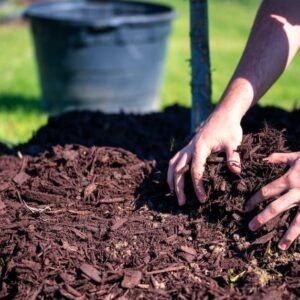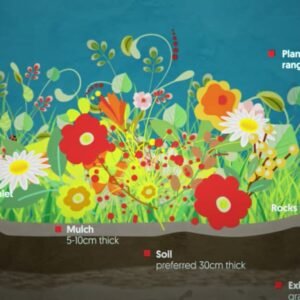
Maintaining a beautiful flower garden is a rewarding experience that can improve the visual appeal of any home. But, the presence of pests can turn this pleasurable activity into a nightmare.
When it comes to pests, the use of harsh chemicals is a major concern as they can impact not only the pests but also the environment, animals, and humans.
Luckily, there are safer and more eco-friendly options for pest control, including organic solutions that you can make at home or buy from natural product stores.
Here, we will explore the benefits of organic pest control. We will provide practical tips and recipes for homemade flower garden pesticide solutions.
Short Summary
- Homemade remedies using simple ingredients like garlic, tobacco, Epsom salt, oil, hot pepper, and citrus. These can be effective in controlling pests in flower gardens.
- Natural pest-control products are also available in stores and can be effective in controlling stubborn perennial insect pests.
- Growing flowers organically has several benefits and can be achieved by using homemade or natural pest-control solutions.
- It is important to avoid using insect sprays on blossoms or in high temperatures. Also, take precautions to avoid damaging plant tissues.
Organic vs Chemical Treatments
When thinking about pest control for flower gardens, it is important to consider the positives and negatives of both organic and chemical treatments.
Organic remedies offer a natural and safe alternative to chemical treatments.
Chemical treatments may provide a more immediate solution. But this comes with potential environmental and health risks.
Organic pest-control solutions have become popular due to their many benefits.
Organic treatments are non-toxic and safe for humans and pets. They also support the environment by promoting healthy soil and biodiversity.
However, organic treatments may not be as effective as chemical treatments and may require more time and effort to control pests.
But, chemical treatments are often more effective in eliminating pests. This comes with potential environmental and health risks.
Some of these risks include water contamination, harm to beneficial insects, and toxic residues.
Ultimately, gardeners need to weigh the pros and cons of each approach and choose the method that best fits their needs and values.
Homemade Flower Garden Pesticide
One approach to managing pests in flower gardens involves the use of homemade remedies that use simple ingredients.
These remedies are cost-effective and also eliminate the need for harsh chemicals.
Harsh chemicals can be harmful to plants, beneficial insects, and the environment.
They are easy to make and can be customized based on the type of pest infestation and the plant species being cultivated.
To help gardeners get started, here is a table outlining some of the best homemade pest control solutions for flower gardens:
| Pest | Homemade Solution |
|---|---|
| Aphids | Garlic spray, Citrus spray, Hot pepper spray |
| Spider mites | Oil spray |
| Whiteflies | Soap spray, Rubbing alcohol spray |
| Caterpillars | Tobacco spray |
Aside from these remedies, other DIY techniques such as crop rotation, companion planting, and physical barriers can also help reduce pest damage in flower gardens.
By using these natural and homemade solutions, gardeners can manage pests in a safe, sustainable, and environmentally-friendly manner.
Natural Products

Using organic pest control products can be as simple as a trip to the local garden store. Here, you will find a variety of natural options available for flower enthusiasts.
These products control common garden pests without the need for harmful chemicals.
Also, they don’t harm beneficial insects, such as pollinators, which are crucial for a garden ecosystem.
Some natural pest-management options include insecticidal soap, neem oil, and diatomaceous earth.
Insecticidal soap is a blend of natural fatty acids that control soft-bodied insects, such as aphids and spider mites.
Neem oil comes from the neem tree and is great for its insecticidal and fungicidal properties.
Diatomaceous earth is a natural powder made from fossilized remains of diatoms. D.E., as it is known, controls crawling insects, such as ants and cockroaches.
Incorporating composting benefits and companion planting strategies helps keep pests away. It will also improve the health of your flower garden.
Specific Recipes
The use of garlic spray for insect control is a specific recipe that you can make at home for flower garden maintenance.
Garlic has antibacterial, antiviral, and anti-fungal properties that make it a natural insecticide.
To make garlic spray, chop a bulb of garlic and soak it in a quart of water for a day.
Strain the mixture and add a teaspoon of dish soap. Pour the solution into a spray bottle and apply it to the leaves and stems of plants that are infested with insects.
Another effective homemade pesticide is the use of essential oils.
Essential oils obtained from plants such as peppermint, rosemary, and clove are insect-repelling. This makes them ideal for use in flower gardens.
Companion planting is another effective way of controlling pests in flower gardens.
By planting certain flowers and herbs together, you can create a natural barrier that wards off pests.
Planting marigolds along with tomatoes can help to repel whiteflies, which are a common pest that attacks tomatoes.
Additional Considerations
When using homemade or natural pesticides in flower gardens, it is important to consider the impact on bees and butterflies.
A study conducted in the UK found that the use of neonicotinoid pesticides in gardens led to a significant decline in pollinator populations.
This shows the need for caution when using any type of pesticide in outdoor spaces.
To reduce harm to beneficial insects, it is best to apply pest-control remedies early in the morning or late in the day.
This is when bees and butterflies are less active. Also, avoid spraying pesticides on blossoms or in high temperatures.
During this time they are more likely to drift and cause harm to non-target organisms.
Another important consideration when using homemade or natural pest-control remedies is the prevention of the mosaic virus, which affects the nightshade family of plants.
This virus is spread by insects such as aphids and whiteflies and can lead to stunted growth, mottled leaves, and reduced yields.
To prevent the spread of the virus, it is important to control insect populations. This can be achieved through the use of insecticidal soaps, neem oil, or other natural remedies.
It is also important to remove any infected plants immediately. Dispose of them to prevent the virus from spreading to healthy plants.
By taking these considerations into account, gardeners can control pests in their flower gardens.
While minimizing harm to beneficial organisms and preventing the spread of harmful viruses.
FAQs:
Are there any potential risks or drawbacks to using homemade or natural pest control solutions in flower gardens?
Yes, potential risks include effectiveness, inconsistent results, and potential harm to plants if not used properly.
How do you determine which specific pest control solution is best for the type of pest infesting your flower garden?
You determine the best pest control solution by identifying the pest, researching its habits and vulnerabilities, and selecting a targeted remedy accordingly.
Can homemade remedies or natural products be harmful to beneficial insects or pollinators in the garden?
Yes, homemade or natural remedies can be harmful to beneficial insects or pollinators if not used correctly or if they have broad-spectrum effects.
Are there any potential health risks for humans or pets when using homemade or natural pest control solutions?
There can be potential health risks for humans or pets if homemade or natural pest control solutions are ingested, inhaled, or come into direct contact with the skin in excessive amounts.
How can you prevent pests from becoming resistant to homemade or natural pest control solutions over time?
To prevent pests from becoming resistant to homemade or natural pest control solutions, it is important to rotate or alternate different methods of control. Use proper application techniques, and maintain good garden hygiene practices.



